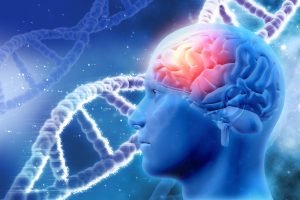Symptoms of the Weak Nervous System
Our nerves system is the master conductor of our body, sending electrical signals throughout, controlling everything from muscle movement and organ function to our senses, emotions, and even sleep. Just like any complex system, it’s susceptible to weaknesses and malfunctions. But how do we know if our nervous system is operating below? This blog delves into the symptoms of a weak nervous system, helping you recognize potential issues and seek proper medical attention if needed.

What is the Weak Nervous System?
You are more susceptible to conditions including encephalitis, meningitis, polio, and epidural abscess if your weaknervous system is compromised. Disorder of function: Neuralgia, headache, epilepsy, and dizziness are a few conditions where patients experience functional problems.
Causes of Weak Nervous System
A study found that there are approximately 600 different neurological conditions that might affect people. Some causes of a weak nervous system include the following:
Weak neural:
Systems can result in infections like encephalitis, meningitis, polio, and epidural abscesses.
Functional disorder:
Patients with functional problems may have headache, dizziness, epilepsy, or neuralgia, among other ailments.
Diseases of the structure:
Individuals with compromised brain systems may experience both functional and structural abnormalities. Among these include issues with the brain, spinal cord, and cervical spondylosis.
Vascular issues:
Frequently caused by transient ischemic attacks, strokes, subdural hemorrhages, subarachnoid hemorrhages, and extradural hemorrhages.
Degeneration:
Degenerative illnesses are another way in which the neurological system can affect your body. Among these are Huntington’s disease, Parkinson’s disease, and multiple sclerosis.
Symptoms/Signs of Weak Nervous System
The following is a list of the most typical general signs and symptoms of illnesses affecting the neurological system. However, symptoms could differ from person to person.
Here are some potential symptoms and signs of a weak nervous system:
Extended-lasting headache:
Individuals with a negative outlook are more prone to persistent headaches.
Tingling or a loss of sensation:
Numbness is characterized by tingling or a loss of feeling in a particular area of the body. It can be all or just some of it. Even though it is a typical symptom of numerous medical conditions, it typically indicates a nerve issue in the body.
Lack of strength or muscle weakness:
The most common sign of motor neuron damage is muscle weakness. Other symptoms include muscle atrophy, fasciculations, and painful cramping. Because sensory nerves are involved in so many different processes, damage can result in a wide range of symptoms.
Blindness or double vision:
The nerves in your eyes connect directly to the brain, which processes visual information. The brain is the source of several causes of double vision.
Lack of clarity in thought:
Your nerves will be affected, making it difficult to think clearly.
Treatments for Weak Nervous System
A study found that regular exercise can significantly help cure nerve issues. Nonetheless, you can perform several additional things to fortify your nervous system.
A few treatments and therapies for a weak nervous system are as follows:
Daily Exercise:
When discussing exercise, we’re not just talking about physical activity. We’re also talking about mental endeavors. For instance, you can finish crossword puzzles. This will help treat conditions like paralysis, stroke, and memory loss.
Sunlight Exposure:
Studies show that exposure to direct sunshine benefits the body. Daily 10-minute exposure to sunlight can significantly strengthen your neurological system, which provides the body with vitamin D.
Walk barefoot on the grass:
In our modern surroundings, we frequently forget the many advantages of going barefoot on grass. It boosts immunity and significantly better sleep habits.
Proper sleep cycle:
Improving your physical, mental, and safety health depends on your sleep cycle. You must get eight hours of sleep every night for your nervous system to operate as intended.
Incorporate some meditation:
This is a great way to reduce anxiety. Blood pressure, pulse rate, breathing rate, and other nervous system functions can all be controlled by meditation.
Foods for Weak Nervous System
The brain needs specific nutrients to function correctly because it is a body component. We’ve put together a list of foods that will improve the function of your nervous system and brain.
Fish:
Fish nerves are shielded by myelin sheaths with high fatty acid content.
Dark chocolate:
The process of making chocolate varies. 70% of chocolates in stores are heavily processed and have minimal nutritional content. Dark chocolate contains flavanols, which have antioxidant and anti-inflammatory qualities.
Broccoli:
Studies have indicated that broccoli’s high vitamin K content enhances cognitive function and brain capacity. Numerous studies have shown that it has a high concentration of a substance called glycosylated.
Eggs:
Eggs are a great source of choline and B vitamins. Eggs contain choline, which is transformed into acetylcholine, a neurotransmitter that helps with memory and brain cell communication.
Salmon:
As mentioned earlier, omega-3 fatty acids have a major impact on cognitive performance. Poor mental function and a smaller brain have been linked to low amounts of omega-3 fatty acids.
Who Treats Nervous System Disorders?
An expert in the diagnosis, treatment, and management of conditions affecting the neurological system, which comprises the brain, spinal cord, and nerves, is known as a neurologist. Neurological illnesses and conditions can impact your walking, speech, and cognitive abilities. The affected nervous system component determines the severity of the neurological symptoms. It is possible to experience pain or changes in any of your five senses. Numerous ailments can be diagnosed and treated by a neurologist.
Conclusion
SLG is the Best Hospital in Hyderabad, we understand the importance of the nervous system and the impact its health has on overall well-being. We are committed to providing comprehensive neurological care, from diagnosis to treatment and rehabilitation.
Our highly qualified and experienced neurologists and neurosurgeons utilize advanced technology and a patient-centered approach to address various nervous system disorders.















